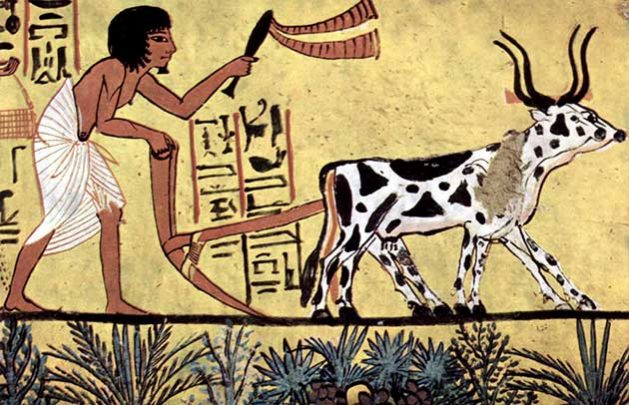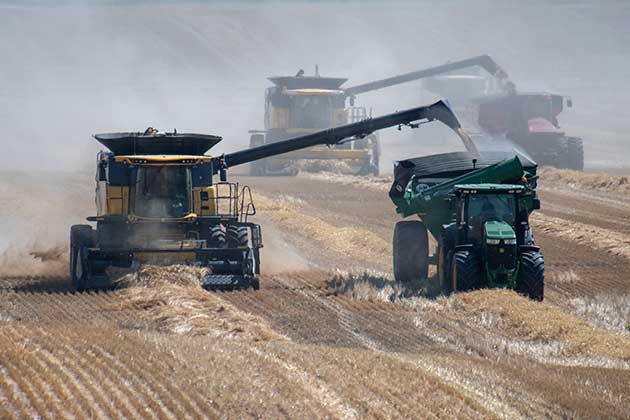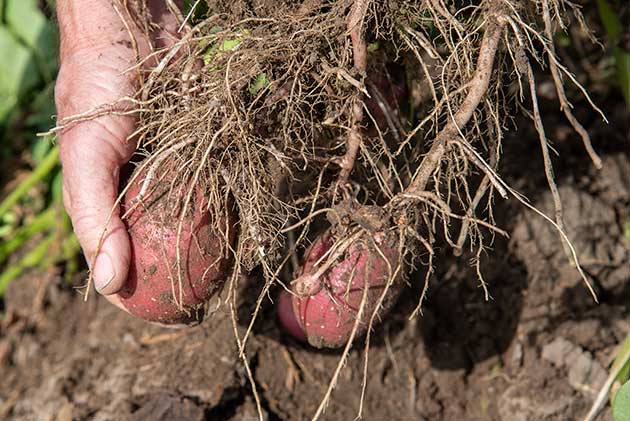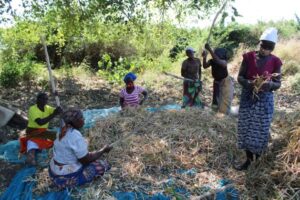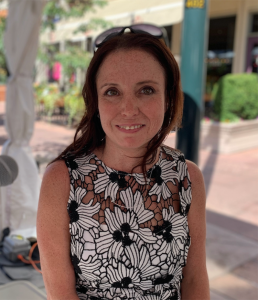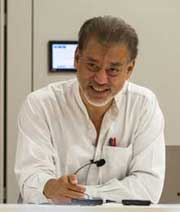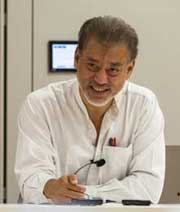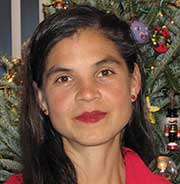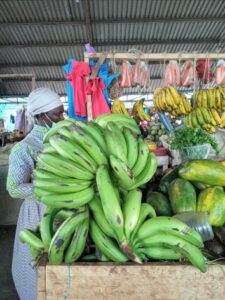
Biodiversity, Conferences, Environment, Featured, Food and Agriculture, Food Security and Nutrition, Food Sustainability, Global, Headlines, Health, Humanitarian Emergencies, Sustainability, TerraViva United Nations
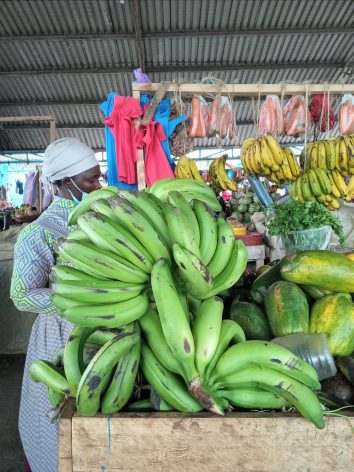
An European Institute for Innovation and Sustainability (EIIS) programme focusses on production, distribution, and consumption issues of food systems. Credit: Joyce Chimbi/IPS
– Food security experts have raised an alarm that with as many as 811 million people the world over or 10 percent of the global population going hungry, the world is off-track to ending hunger and malnutrition.
More so, after a decade of steadily declining, the number of malnourished people grew by 161 million from 2019 to 2020 alone, a spike attributed to complex global challenges such as COVID-19, climate change and conflict, according to the United Nations.
Against this backdrop, the European Institute for Innovation and Sustainability (EIIS) launched a three-month, challenge-based and solutions-oriented food sustainability certificate course in May 2021 to actively help countries fix their food systems.
“Our aim is to provide a comprehensive base for a deeper understanding of the complex dynamics of food, giving course participants the tools and insights to perform better at work, shift careers, and become even more conscious and responsible consumers,” says Sveva Ciapparoni, the Food and Sustainability course coordinator.
With a special focus on G20 countries, as they are most representative of the world’s population and economy, the EIIS food sustainability programme uses the Food and Sustainability Index (FSI) to help learners understand the dynamics behind food systems and their inherent power to promote or derail the attainment of UN’s Sustainable Development Goals (SDGs).
Developed by the Economist Intelligence Unit with the Barilla Center for Food and Nutrition Foundation, the food index collects data from 67 countries worldwide to showcase best practices and highlight key areas for improvement towards the production and consumption of sufficient, sustainable and healthy food.
The EIIS programme breaks away from traditional food courses solely centred around gastronomy, culinary management and hospitality to focus on production, distribution and consumption issues at the very heart of the SDGs.
Marcela Villarreal, the Director of Partnerships and UN Collaboration Division at the Food and Agriculture Organization (FAO), indicates that the “course directly addresses several SDGs. These include fighting hunger (SDG 2), promoting the health of both people and planet (SDGs 3, 13, 15), and encouraging conscious and responsible consumption (SDG 12).”
“The food system approach adopted by the course through specific challenges is particularly conducive to understanding the SDG agenda and proposing solid and interconnected solutions,” Villarreal, also one of the foremost experts from the Food and Sustainability course’s faculty, says.
As such, participants, who were part of the May 2021 cohort of learners, had an opportunity to intersect the three critical pillars of any food system, including sustainable agriculture, nutritional challenges and food loss and waste, with the three areas where food experts say solutions to the broken food systems lie: innovation, education and policy.
Also unique to the course, the programme is taught through a Challenge Based Learning approach that “allows for the practical application of the concepts learned throughout the modules.
“How to feed 10 billion healthy foods, preserving the health of people and planet is the ambitious challenge tackled by the participants,” says Villarreal.
Participant Anant Saraf confirmed that being taken through online tuition combined with practical workshops enabled them to analyse food systems, understand the complexities of the food systems, and identify the most pressing problems facing specific food systems to provide solutions.
Importantly, Ciapparoni says that the course is an opportunity to interact with topics increasingly crucial to food production, distribution, and consumption in line with the SDGs and the UN’s first-ever food systems summit that kicks off on September 23, 2021.
Held within the UN General Assembly week in New York, the virtual UN Food Systems Summit will set the stage for global food systems transformation.
To do so, the UN will engage citizens from all over the world, including youth, researchers, food producers, indigenous people, civil society, and the private sector, in a discourse to transform how the world produces and consumes food.
As with the EIIS food sustainability course, the UN Food Systems Summit is a golden opportunity to empower people to understand and use the power of food systems to recover from COVID-19 and get back on track to end world hunger and malnutrition.
Ciapparoni indicates that course participants were aware that they would be contributing to the Summit.
The course challenge aligns with the UN Food Systems Summit agenda as it was developed in consultation with Martin Frick, deputy to the UN Secretary-General Special Envoy for the UN Food Systems Summit 2021, he added.
Therefore, at the heart of the EIIS course was an urgent need to build a generation of food leaders that can effectively transform food systems for food security, improved nutrition, and affordable healthy diets for all.
Towards this objective, Villarreal says that course participants were “divided into teams based on their backgrounds, diversity being the main criteria and that each team got assigned a G20 country to be analysed, with a specific focus on its food system.”
“After identifying the country’s key challenges, each team proposed possible solutions to improve their assigned country’s food system. The underlying idea is that, by proposing ways in which single countries can improve the sustainability of their food systems, participants will be able to suggest how to promote food sustainability globally – and thus address the course’s main challenge,” Villarreal adds.
Team South Africa, for instance, discussed the country’s rapid urbanisation and unfolding food production and security challenges in light of climate change and complex social, economic, and environmental challenges.
As for Saudi Arabia, the team concluded that the food system faces numerous challenges, as highlighted in the food and sustainability index of 2021 that ranked Saudi Arabia last compared to other G20 countries.
Saudi Arabia has the highest reliance on food imports among the G20 countries. The team aimed to identify how the country could overcome the food production challenges caused by its dry and hot climate.
Team India had the task of identifying how the country, ranked 13th among the world’s extremely water-stressed countries due to inefficient irrigation systems, groundwater depletion, and high production of water-consuming crops, can overcome these challenges.
With regard to the USA, the team analysed how the country, which has the highest food waste per capita globally, can address this problem.
Team Russia sought to fix the country’s faulty food production systems, processing, and transportation.
Team South Korea’s challenge was found in the globalisation of the country’s food system has increased consumption of highly processed foods leading to a food crisis.
Participants navigated through these challenges under the guidance of food and sustainability experts, including Villarreal. By providing solutions to fix broken food systems in specific countries, the EIIS course will have contributed towards practical solutions on how to feed 10 billion people by 2050 healthy food without harming the planet.


